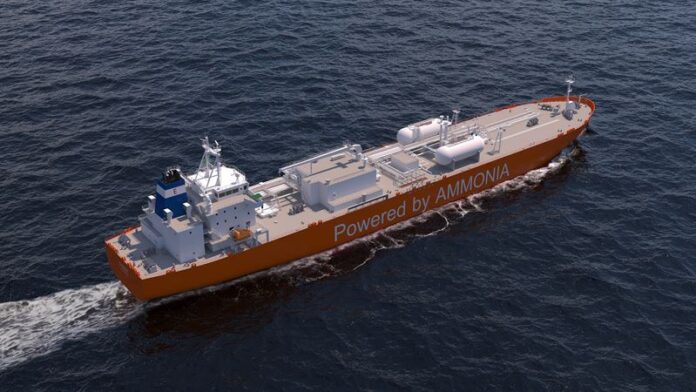Wärtsilä Gas Solutions (WGS), a division of the technology group Wärtsilä, has been contracted to provide the fuel supply and cargo handling systems for two new gas carriers designed to operate on ammonia fuel.
These vessels are being constructed at Hyundai Mipo Dockyards (HMD) in South Korea for ship owner EXMAR LPG, a joint venture between EXMAR, a versatile provider of maritime and offshore solutions, and Seapeak, an indepedent owner-operator of liquefied natural gas vessels.
“Ammonia utilisation is vital in our pursuit of decarbonised operations. Achieving this requires fuel handling and supply systems tailored for ammonia, and Wärtsilä possesses the expertise and capabilities to provide these solutions. EXMAR, with over 40 years of experience in handling ammonia, has a proven track record in the safe and efficient transport of this fuel. This collaboration leverages EXMAR’s extensive knowledge and Wärtsilä’s advanced systems to pioneer ammonia as a marine fuel, contributing significantly to the reduction of greenhouse gas emissions,” stated Carl-Antoine Saverys, CEO of EXMAR.
According to the statement, the order, secured in the second quarter of 2024, marks the culmination of a series of six new builds for EXMAR, all of which will feature Wärtsilä’s cargo handling and fuel supply systems.
“This latest contract win is a significant achievement for our company and demonstrates our expertise in providing innovative and sustainable solutions for the maritime industry. It is also fully in line with Wärtsilä’s strategy for enabling decarbonised shipping operations and reinforces our strong partnership with both EXMAR and Hyundai Mipo Dockyard,” commented Patrick Ha, Sales Manager of Wärtsilä Gas Solutions.
These medium-sized gas carriers (MGCs) represent a pioneering advancement as they will be the world’s first ocean-going vessels capable of running on ammonia as a primary fuel source.
In addition, ammonia offers the potential to substantially reduce greenhouse gas emissions compared to traditional marine diesel fuel, as it does not generate CO2, sulfur, or particulate emissions when burned.







